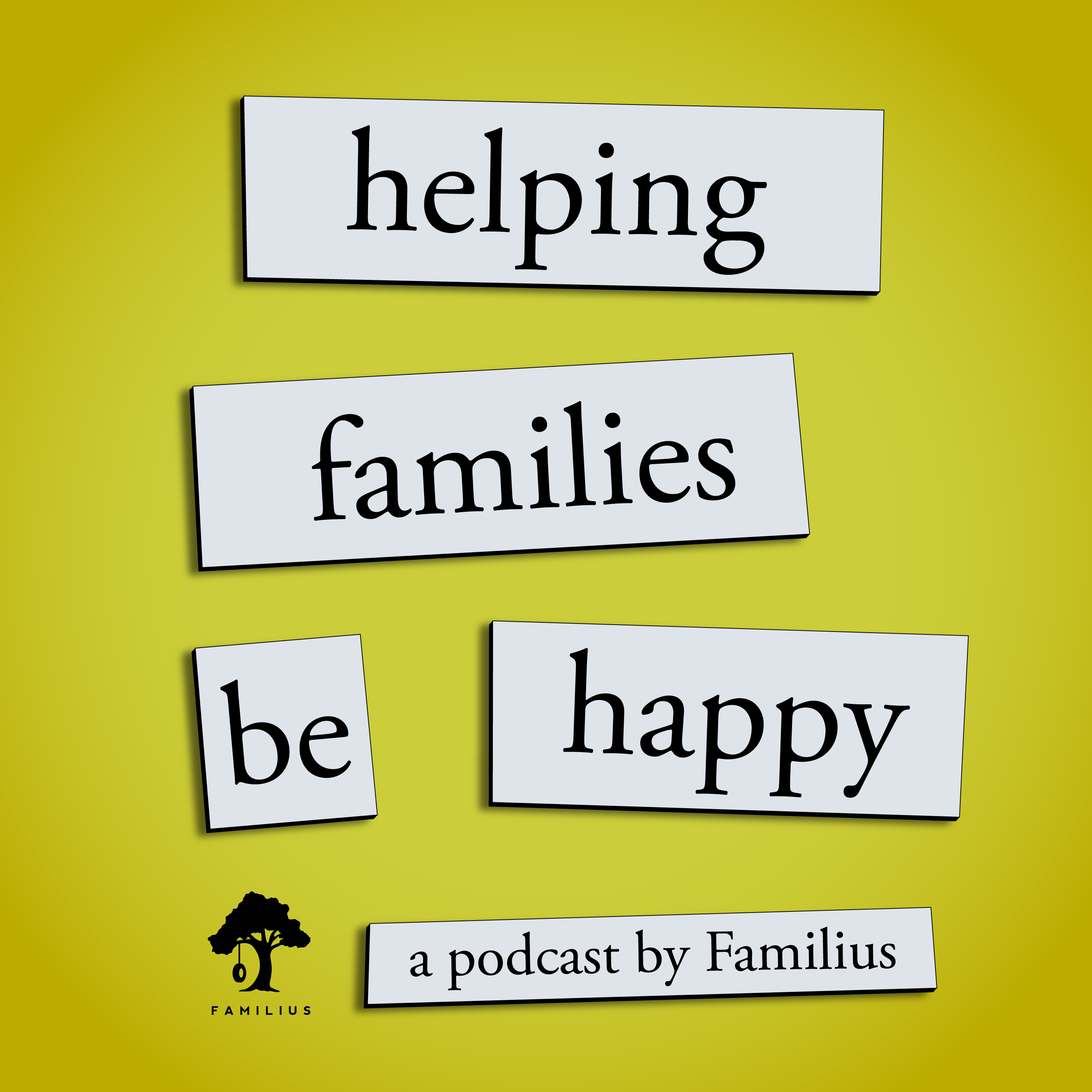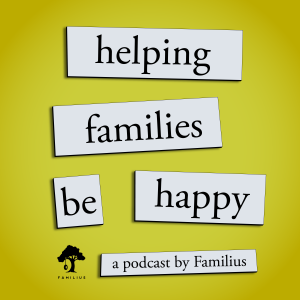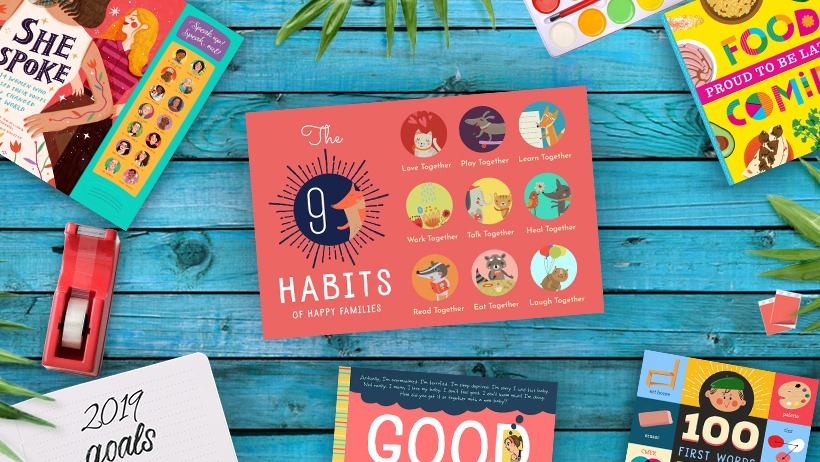
14.4K
Downloads
215
Episodes
With help from guest authors, experts, and community and business leaders, the Familius Helping Families Be Happy podcast explores topics and issues that connect families to the nine habits of a happy family: love, play, learn, work, talk, heal, read, eat, and laugh together.
Episodes

Wednesday Sep 28, 2022
Let’s Talk About Gen-Z with John Schlimm
Wednesday Sep 28, 2022
Wednesday Sep 28, 2022
In today’s episode of the “Helping Families Be Happy” podcast, host Christopher Robins, Co-founder of Familius Publishing (A Husband, Father, Author, Fisherman, Backpacker, and Aspirational Musician based in the Central Valley of California) talks with guest John Schlimm, Harvard Trained Educator, Artist, Advocates, International Award-Winning Author about what would Gen Z do, and what we can learn from this magnificent and inspiring Generation?
Episode Highlights
- 01:17 – Christopher introduces John and shares about his work toward Gen Z. John is an author of Children's Picture Book (The Star jumped over the moon) and the upcoming (What Would Gen Z Do?)
- 03:00 – Christopher enquires from John about who is it that defines or decides that certain years become a certain type of generation, and what that even means.
- 05:05 – John discusses the stereotypes about Gen Z.
- 07:22 – John reveals that what he has learned from Gen Z is to always be the first one to initiate conversation. Oftentimes we as Non-Gen Z adults have to take that first step and ask the first question, initiate that conversation.
- 09:40 – John recognizes how open and courageous Gen Z was, unlike any other generation to be sharing their mental health challenges and struggles.
- 11:50 – Although Gen Zs are open and courageous and tell us anything we want to know about their mental health or their thoughts on it. But as a generation, they do have the highest suicide rate in history, states John.
- 13:09 - There's a lot more learning and understanding that we need to address, states Christopher.
- 15:10 – John shares that Gen Z has taught him about gaming and gamers, this stereotype that they have had since the PacMan days of the lazy kid sitting in a dark basement maybe someone even in their 20s and 30s sitting in mom and dad's basement just playing video games all day letting their brain and life waste away is not accurate.
- 17:18 – Christopher says, there's so much to embrace about new generations and their innovation.
- 19:17 – John has started encouraging Gen Zs to put a section on their resumes, if they're active gamers, especially if they are in competition and are winning competitions.
- 21: 40 – John encourages Non-Gen Z adults to ask Gen Zs about their tattoos.
- 23:00 – What needs to happen with education, discusses John.
- 27:10 - If we don't deliver then as educators, Gen Zers are already turning to YouTube and other sources to teach themselves, mentions John.
- 29:00 – One of the funniest parts about Gen Z and certainly something unexpected was when they started telling him how much they love the 1980s culture of movies, music, fashion, etc.
- 30:28 - It is nice of a stereotype as it is because they're looking at us through the lens of the music, movies, big hair, fashion, and the neon, says John.
- 33:49 – Christopher asks John that every chapter in his book ends with two questions, one for the reader to ask themselves and one for the reader to ask Gen Zers. He asks, why it was important to him to do that for every chapter.
- 35:15 - This book in many ways is for parents, teachers, employers, and people who are working with this wonderful generation on an everyday basis, says Christopher.
- 37:00 – John gives an example of an activity that is helpful for us to engage in with Gen Z and Y.
Three Key Points
- John says his number one piece of advice when it comes to Gen Z is if we want to know something, just ask them. One of the ad-raps that Gen Z give is that they seem so quiet and introspect or introverted and that's when they come off as being maybe a little bit aloof or rude in social settings. So, what he has learned after talking to 1000s of Gen Zers now across the country is that it's not that they don't have anything to say, but again, and again, they tell him that many of them have social anxiety.
- John says - the more skill-based we can make every facet of education, it’s better. Especially for Gen Z as they want to learn skills. So, the traditional model of lecture, homework, test, and repeat, just doesn't cut it for them anymore. That's not to say that we have to do away with that model completely. There is still a place where lecturers are needed. Homework for sure is needed but if we as academic culture, and academic society, those of us who are in the academic world can take a look at every class we teach, and transition as much of it as possible to be in a skill-based model that's going to better serve our students and give them what they need.
- John explains the reason for having two questions in every chapter of his book. He wanted this to be interactive on different levels, not only as a way for the reader to get to know Gen Zers better, but he also in that process wanted the reader to get to know themselves a little better and to check in with themselves and ask themselves the questions about how do I perceive my mental health? So, it became a great opportunity with those two questions at the end of each chapter for the reader to check in with themselves about the topic at hand, but also then to ask Gen Zers because again, he’s all about facilitating better communication between Gen Zers, and the rest of the world. So, he thought that those two questions allowed that to happen and gave some guidance and even sort of permission to the reader to engage in a better line of communication with themselves and with Gen Z.
Tweetable Quotes
- “The age range of Gen Z years is 10 to 25.” – John Schlimm
- “Mental health part of Gen Z is what initially drew me to these young people.” - John Schlimm
- “They've pulled me more into the realm of mental health advocacy.” - John Schlimm
- “I went to the source rather than trying to make up answers in my head or rely on stereotypes.” - John Schlimm
- “But for Generation Z, first of all, gaming has become a bona fide sport.” - John Schlimm
- “The US military are now actively recruiting gamers to come work for them.” - John Schlimm
- “One of the things I learned early on from Gen Z as well as they are taking the art of the attack to a whole new level of sentiment and storytelling.” - John Schlimm
- “As an artist and a storyteller, I'm fascinated by tattoos.” - John Schlimm
- “It's all about at the end of the day having fun and connection.” - John Schlimm
Resources Mentioned
- Helping Families be Happy Podcast Apple
- John Schlimm: Website
- Podcast Editing

No comments yet. Be the first to say something!